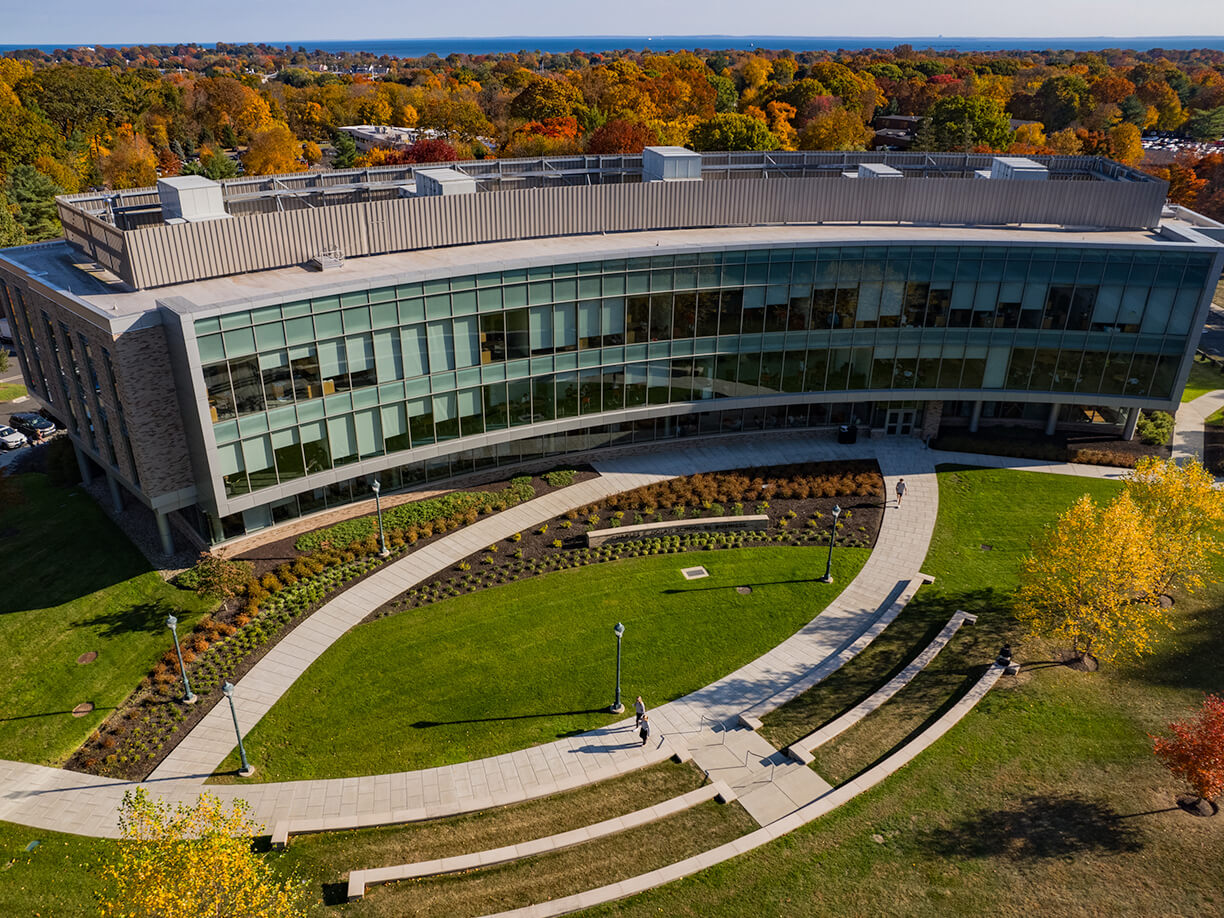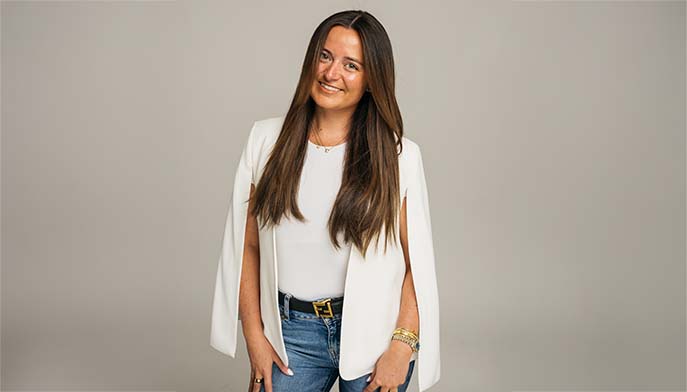Fairfield News
Fairfield News in Your Inbox
Questions for Us?
Contact our Public Relations Team

Climbing six spots from last year, Fairfield University’s online Master of Business Administration (MBA) program within the Charles F. Dolan School of Business is currently ranked #17 nationwide among the best online MBA programs in the U.S. by Poets & Quants.
I went straight into Covid out of college. I more or less had to learn to leverage social media because all contact with prospective clients was now virtual. I had to learn on the fly.”

Contact our Public Relations Team
